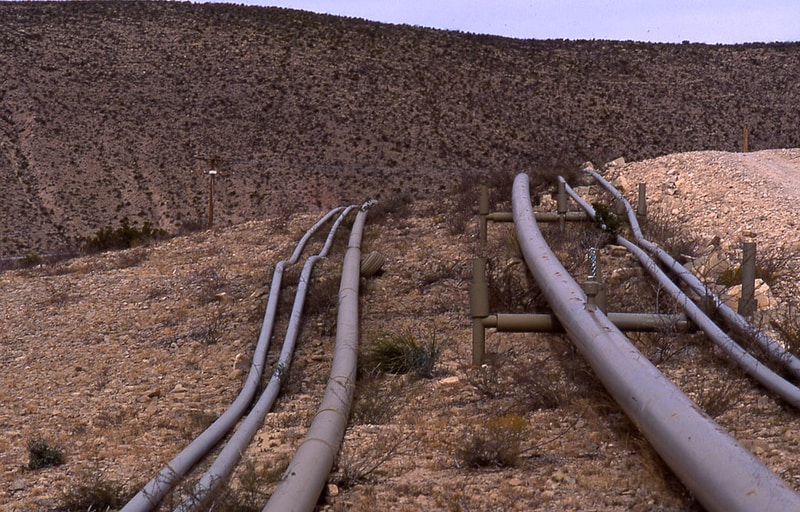On September 1, the Provincial Court of Orellana in Ecuador’s Amazon dismissed the case brought by indigenous communities to shut down major oil pipelines over the April 7 oil spill that affected nearby land, wildlife and communities. The judge asserted that there are other mechanisms in place to address claims for remediation and redress. The communities have said they will appeal the verdict.
—
On August 12, Earth.Org reported that National and Amazon-region Indigenous federations and communities in Ecuador had filed legal actions demanding that the flow of crude oil through Ecuador’s major pipelines be suspended. The judge said that the court was the incorrect legal venue to bring the case to and that ‘administrative, civil and criminal mechanisms exist to address plaintiffs’ claims for remediation and redress’.
The communities will appeal the verdict and, with other Indigenous organisations and international partners, ramp up their global campaign, “Stop Amazon Extraction,” calling for a moratorium on all extraction in the Amazon.
Carlos Jipa, president of the Kichwa Indigenous federation, FCUNAE, says, “We denounce the judge’s decision today. The judge failed to even so much as acknowledge our rights, when, in fact, his decision should have ordered the immediate suspension of crude oil through the compromised pipelines that continue to endanger my people. Oil operations are still contaminating our rivers and threatening our lives. We protect our rivers and our forest, and we are ready to fight this until the end. We will appeal the court’s decision.”
You might also like: Indigenous Communities File Legal Action Against Major Oil Pipelines in Ecuador
The spill was the result of the SOTE and OCP pipelines that ruptured from erosion and put at risk the safety and health of the Kichwa people; communities in Ecuador, Peru and Brazil that depend on the Coca and Napo rivers for drinking water. A number of endangered and vulnerable wildlife species in the area were also threatened by the spill. Aggressive erosion and massive landslides are threatening an imminent second oil spill.
The affected indigenous territories overlap the Bajo Napo Key Biodiversity Area (KBA), a site of global importance to the planet’s overall health and the persistence of biodiversity. The KBA is home to a remarkable diversity of wildlife. With more than 580 species of birds, including harpy eagles, zigzag herons and cocha antshrike, and high levels of biodiversity of species of ant birds, tyrant flycatchers, ovenbirds, parrots and tanagers, the KBA is a popular spot for ornithologists and birdwatchers. The area also has a UNESCO Biosphere Reserve and Ramsar Wetland of international importance. Other species at risk include giant armadillos, giant anteaters, lowland tapirs, mountain lions, jaguars, Goeldi’s monkeys, Amazon River dolphins and Amazonian manatees.
Despite substantial evidence that the state and oil companies acted negligently, which included extensive testimony from scientific experts and first-hand accounts from community members, the defense’s lawyers argued throughout the trial that the companies were not responsible. They claimed that the oil spill was an “unpreventable act of nature” and that the river would clean itself over time. They also claimed to have supplied adequate food and water to communities whose lands and drinking water were contaminated, but community members who received limited supplies over the past four months say the aid was wholly insufficient to survive on and came with strings attached.
Maria Espinosa, lawyer for the case from GWC partner Amazon Frontlines, says, “The court’s decision is unacceptable. 27 000 Indigenous people are still in grave danger and facing the imminent risk of another oil spill. Throughout the trial, we have demonstrated how the Ecuadorian government and the oil companies violated the constitutional rights of Indigenous peoples and the rights of nature, and that extractivism is destroying people’s lives and the Amazon rainforest. To this day, there is still no guarantee of justice or reparations for those affected. We will appeal this ruling, and fight together until justice is delivered.”
This article comes from the frontline activities of Amazon Frontlines, whose mission it is to support indigenous peoples to defend their rights to land, life and cultural survival in the Amazon Rainforest.
—
Amazon Frontlines
Amazon Frontlines is a non-profit organisation based in Lago Agrio, Ecuador that leverages technology, legal advocacy and movement building to support indigenous peoples to defend their rights to land, life and cultural survival in the Amazon Rainforest. For more information, visit www.amazonfrontlines.org
Global Wildlife Conservation
GWC conserves biodiversity on Earth through the safeguarding of wildlands and wildlife protection. It engages in biodiversity exploration, habitat conservation, protected area management, wildlife crime prevention and endangered species recovery. For more information, visit https://globalwildlife.org.
Featured image by: Forest Guardians

















